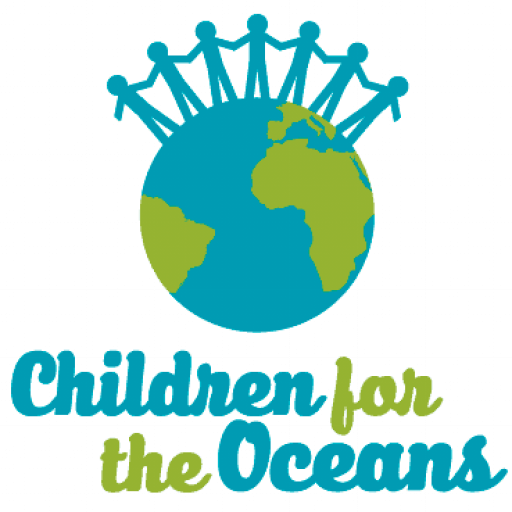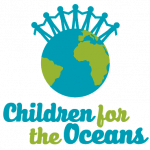
Children for the Oceans urge Europe and France’s leaders to take the lead in the implementation of regulation for the protection of the ocean and pledge to be strong in front of powerful lobbies in order to to ensure a future for future generations.
Transcript of the speech given by Thomas at the Ocean Pavilion in Biarritz.
Hello, My name is Thomas Lesage. I am fifteen and I am here as Founder of Children for the Oceans but also as Ambassador for “Generation Mer”. Before beginning, I would like to thank Surfrider for the invitation and for organizing this ocean-related event as today our oceans need all our attention. We have seen during these four days that the ocean is at the heart of our life.
Today, science has demonstrated countless times that we CAN NOT live on earth with a dead ocean. Our oceans represent two-thirds of the planet’s surface, they represent 97% of the earth’s water supply, our oceans absorb more than 25% of our CO2 emissions, they produce half of the oxygen we breathe.
As mentioned earlier, it would be impossible to live on planet earth with dead oceans. We have to remind that oceans also generate economic benefits for human beings to all our decision makers.
Indeed, From an economic development standpoint, they generate 2.5 trillion dollars of economic benefits per year, our oceans provide fishing resources to 4.3 billion people, 90% of goods are today transported by sea.
But, a blue economy can only be sustainable if the marine environment on which it relies is healthy and thriving. However today, our ocean is more than threatened, by major threats each caused by human activities. It is our duty to remind the world including all decision makers that today one out three fish stock is overfished, half of coral reef and mangrove are gone and the number of overfished stocks globally have tripled in half a century. Bycatch and illegal fishing are closely linked to overfishing as bycatch represents roughly 30% of the world fishing per year, and illegal fishing 30% of the catch for high value species.
Today there is a big lack of international regulation on overfishing. Moreover, the subsidies that are granted to fishing industry without any counterpart or sustainable criteria contribute to empty our oceans.
Today because of those harmful subsidies, our fishing fleet is estimated to be up to two and a half time the capacity needed to catch what we actually need.
Finally we need to draw the attention of decision makers on ghost nets. A ghost net is a fishing net that has been lost and abandoned in the ocean.
Ghost nets do not only catch fish but they also entangle everything that comes in their path like dolphins, sea turtles, sharks, birds and many more species.
Furthermore, most nets today are now made out of nylon or other plastic compounds that can last for centuries.
As a result, according to scientific reports, ghost nets make up at least 46% of the Great Pacific Patch.
As many speakers have reminded it, plastic pollution is the other major threat, which exists everywhere from the bed of the deep sea to the remote seas of the Artic. Every minute one garbage truck is dumped into the ocean. In France, each citizen consumes an average of 513 kilograms of plastic per year while in the United States, the average goes up to 740 kgs per person per year.
Do we really need that much plastic in our daily lives? Can we really sustain this way of consuming? We all agree that we do not need.
What exists in terms of current regulation for plastic pollution? Today there is no international global framework on the use of plastic and only very few countries regulate plastic through its entire lifecycle, whereas the production of plastic keeps on increasing worldwide.
My last focus will be on one final threat: acidification.
Our oceans absorb more than 25% of our CO2 emissions. As a result, it absorbs roughly 22 millions of tons of CO2 every day, which has a major detrimental impact on marine ecosystem and biodiversity (40% of coral reefs have disappeared in the last forty years).
What are the regulations that are trying to prevent acidification today? Even though Ocean acidification has been discovered in 2000 and studied by experts and scientists since 2008, today there is no international regulation on acidification.
NEEDLESS TO SAY TO OUR DECISION MAKERS THAT ALL THESE THREATS TO THE OCEAN IDENTIFIED WILL DEFINITELY CONTRIBUTE TO INCREASE AND EMPHASIZE INEQUALITIES WORLDWIDE.
CHILDREN FOR THE OCEANS was created in 2018 before my worldwide sailing tour last year for the oceans.I wanted to contribute at my level and I realized that education was key and a very powerful tool to protect our planet and our ocean.
Children for the Oceans aims to create a big international community of young ambassadors who can act at their level to protect our ocean.
Today CFTO has provided awareness sessions to more than 450 kids worldwide and counts 7 young ambassadors in 7 different countries in the United States, Mexico, Cayman Island, Canada, UK, Germany and France. Our objective is to raise children’s awareness of the necessity to protect our oceans, providing them with key tips to be applied in their daily life and the most important, empower them, and give them the willingness to join our fight to save our ocean.
It is time for us to act. As young ocean ambassadors and representative of Children for the Oceans, we urge the decision makers to take measures to preserve the oceans and we encourage the civil society to cooperate, innovate and work together.
For this purpose:
. We need to reduce our general consumption and find other ways of consuming, while reducing our need for plastic;
. We need domestic and international regulations to manage the worldwide fish stocks and solve the issues related to illegal fishing;
. We need to limit subsidies given to the fishing Industry and allocate them subject to strict sustainable criteria for fishermen;
. We need to put in place heavy regulation, educate and work with fishermen in order to reduce and eliminate the issue of ghost nets;
. We need to implement international regulation for plastic pollution, managing the entire lifecycle of plastic;
. We need to help and support developing countries in order for them to improve their waste management and support any kind of local initiatives of cooperation.
My last words as a representative of the young generation, I would like to invite Europe and France leaders to take the lead and pledge to be strong in front of powerful lobbies in order to to ensure a future for future generations and avoid jeopardizing their right to have the same fruitful lives those leaders have experienced over the last decades.
